[70 Years of ODA - 2] Solving Social Issues with ODA and Business: The Challenges Gojo & Company, Inc. Faces in Becoming a “Private-Sector World Bank”
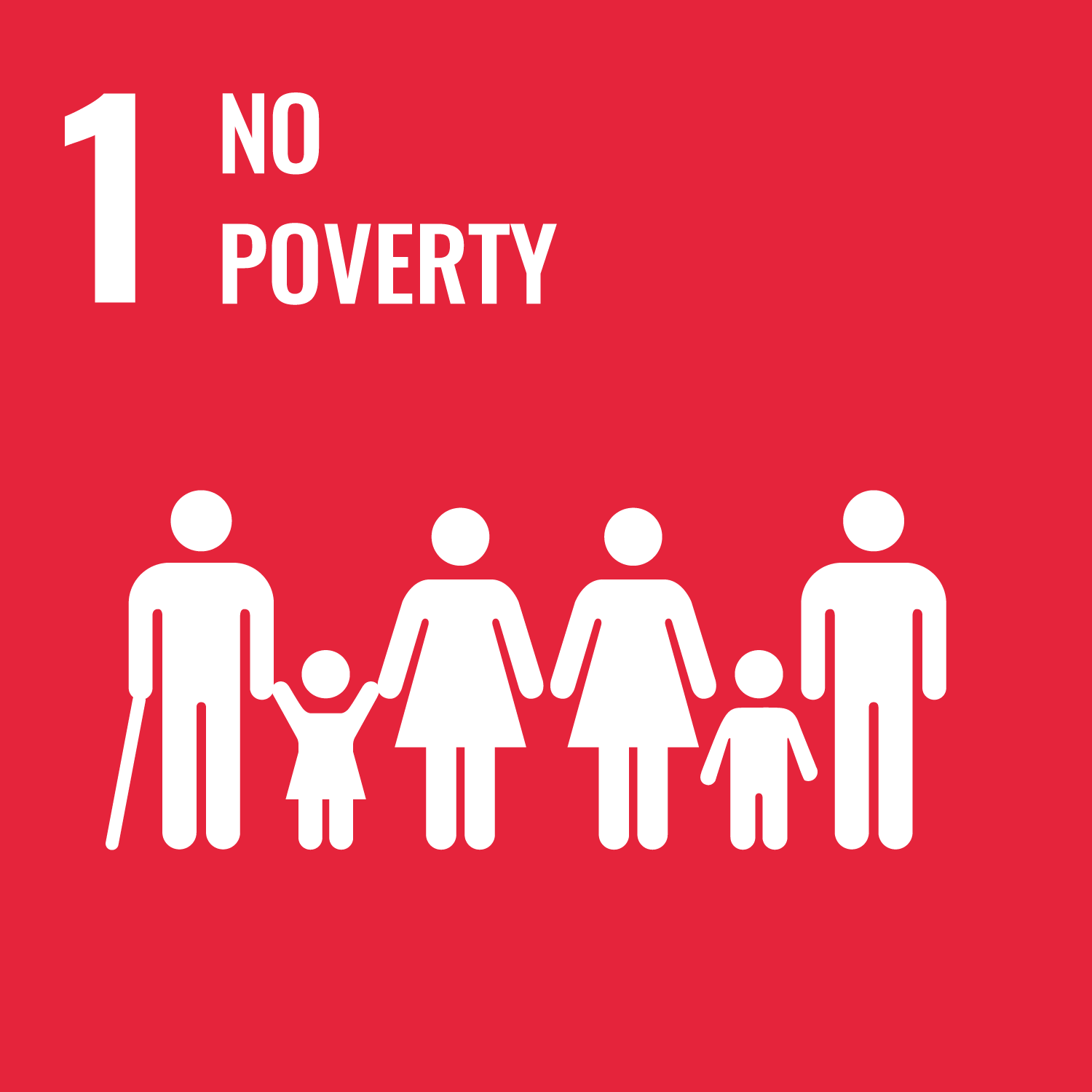
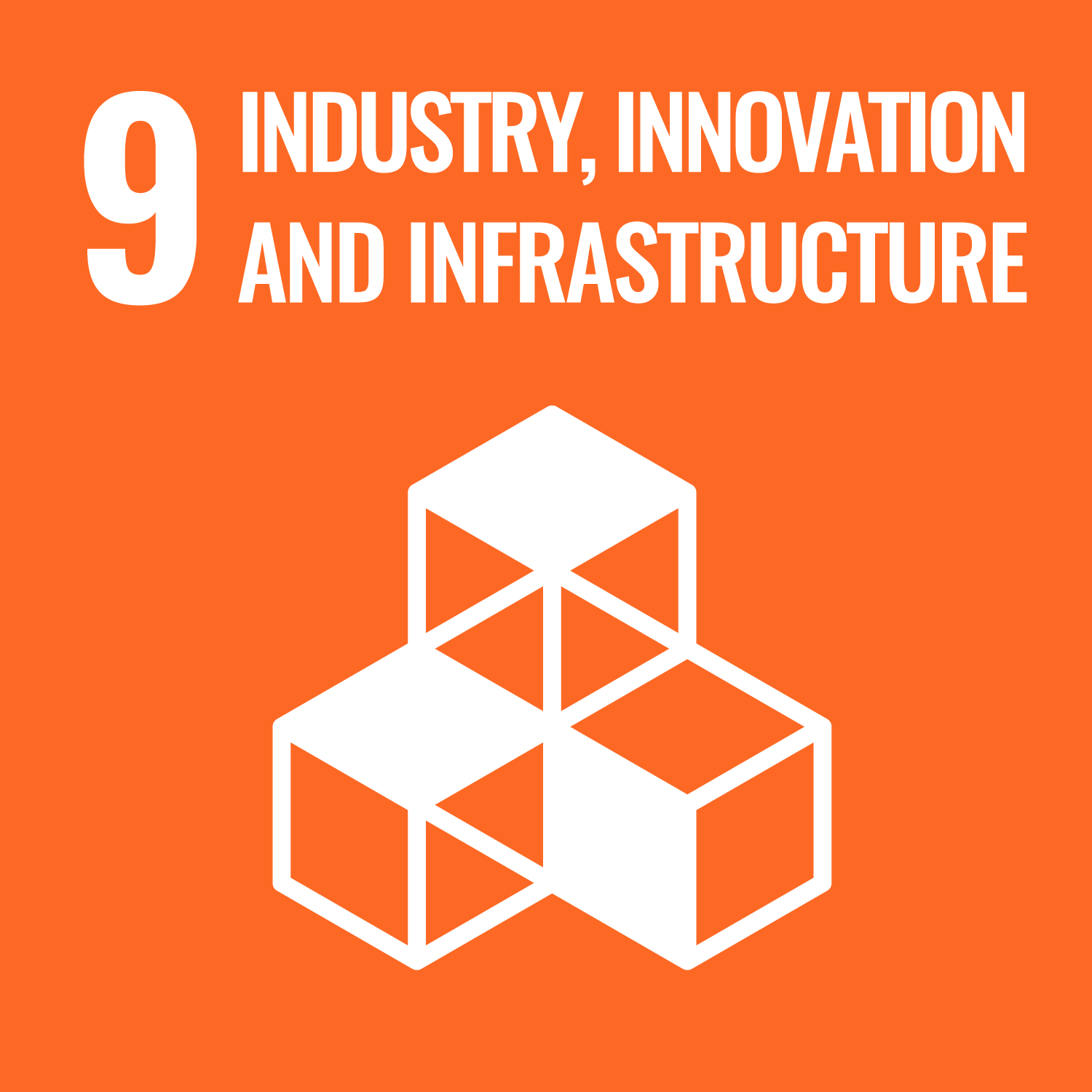

2024.03.19
Private funds, technology, and innovative ideas are vital in solving the various social issues in developing countries. It is more important than ever that the future of ODA (Official Development Assistance) involves collaboration with private companies. JICA, in charge of administering Japanʼs ODA, is leveraging the technologies and know-how of the private sector through supporting private companies in expanding their businesses to contribute to solving social issues and promoting economic growth in developing countries.
Gojo & Company, Inc. (“Gojo”) is a good example of a social enterprise, now expanding its microfinance business (small-lot loans to low-income classes) and providing financial inclusion in five Asian countries. Founded in 2014, the startup has worked steadily towards the realization of a world in which everyone has access to financial services. It has drawn wide attention because of its developmental impact. In a meeting at Gojo & Company’s headquarters, Shin Taejun, Founder and CEO of the company, and JICA’s Azukizawa Eigo discussed the potential of the business in solving developing countries' social issues, and the prospect of ODA.
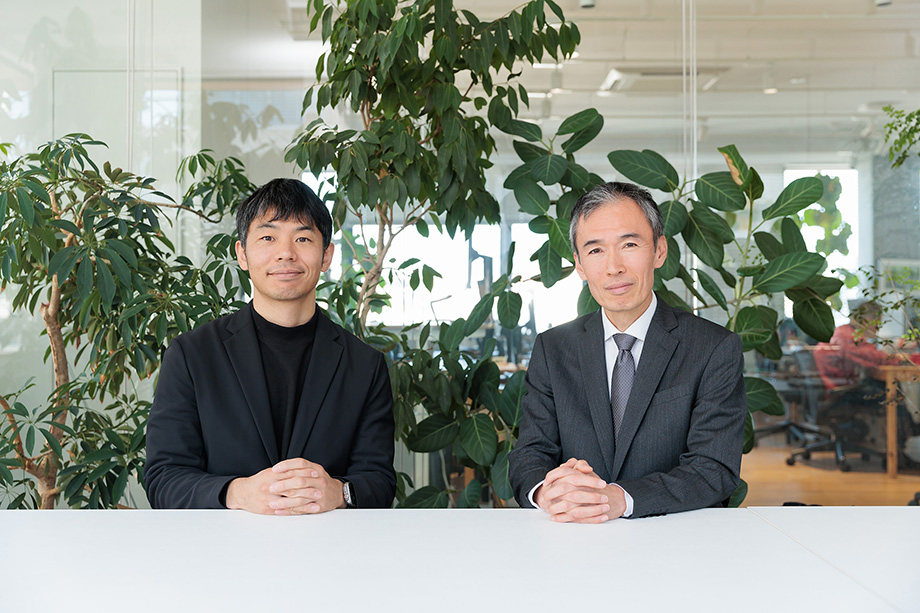
Shin Taejun (left), Founder and CEO of Gojo & Company, Inc., and Azukizawa Eigo (right), Director General of Private Sector Partnership and Finance Department, JICA. Shin ranked #1 in Forbes Japan magazine’s Japan Entrepreneur Ranking 2024.
AZUKIZAWA: In 2019, JICA signed an agreement to invest 1 billion yen with Gojo & Company. On the official webpage, it says Gojo’s vision is “to create a world where everyone can determine their future.” JICA’s stated vision includes the phrase: “aspiring for a free, peaceful and prosperous world where people can hope for a better future and explore their diverse potentials.” So it seems that Gojo and JICA have very similar goals. JICA has engaged in collaborations working on poverty reduction and financial inclusion in developing countries, but JICA itself doesn’t have a financial institution and has some difficulties to provide financial services directly to individuals living in the developing areas. Through collaboration with Gojo, we will be able to take on issues that JICA has been unable to do on its own.
SHIN: We are currently developing microfinance businesses in Cambodia, Sri Lanka, Myanmar, India, and Tajikistan. JICA has a solid track record of achievements in such developing countries and has gained a great deal of recognition and trust from the people there. The financial support of JICA has been invaluable in helping us extend our business into those countries, particularly in the highly regulated financial sector. Since JICA also has representative offices in the countries in which Gojo is operating, this is a great advantage in terms of accessing local information and exchanging opinions.
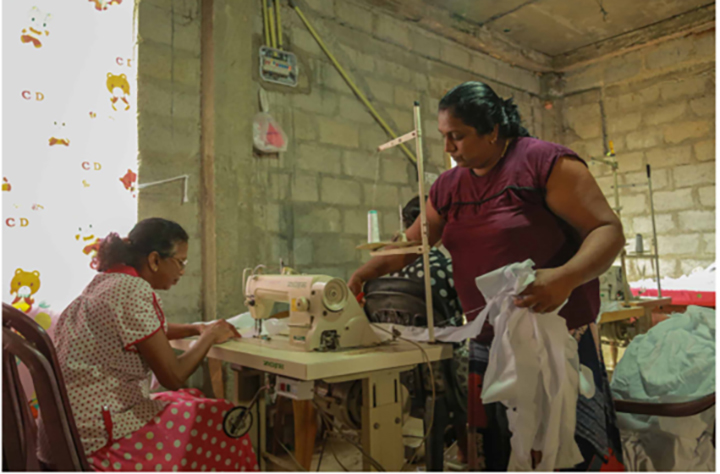
More than one billion people worldwide are said to lack access to financial services. Thanks to microfinancing from Sejaya, the local Gojo Group company, however, this Sri Lankan woman (right) was able to purchase a sewing machine and begin manufacturing and selling clothing. She later expanded her business to the point where she was able to hire more employees.
AZUKIZAWA: The speed at which Gojo has grown its business is impressive. Gojo has continued to show strong growth, yet their commitment to their customers hasn’t changed since the time when we first invested. I feel that this has led to them gaining the trust of customers and investors. Gojo has brought financial inclusion to many people in developing countries through growing their own businesses.
SHIN: Our group companies now handle more than 2 million customers. While developing our business, we have continued to place importance on gaining a deep understanding of who our customers are, and what kinds of financial services they are looking for. The Survey on households using Financial Diaries that we conducted in Cambodia in cooperation with JICA is one example of this. In this research program, we measure the impact of our microfinance operations by having low-income households keep accounting books, which enables us to gain detailed insights into their household finances, including income and expenses.
AZUKIZAWA: The households survey had the additional impact of improving the financial literacy of the participating households. Through this survey, as noted in Gojo’s Impact Report (2023 July) (*Note), it was possible to understand in detail customers’ needs and what kinds of services could be provided to further enable financial inclusion. Gojo was then able to provide better services with a short turnaround, which helped their business grow even more.
On the other hand, as also noted in the Impact Report, the use of microfinance does not always lead to improved income for the low-income classes. There are certain limitations to realizing financial inclusion in this way.
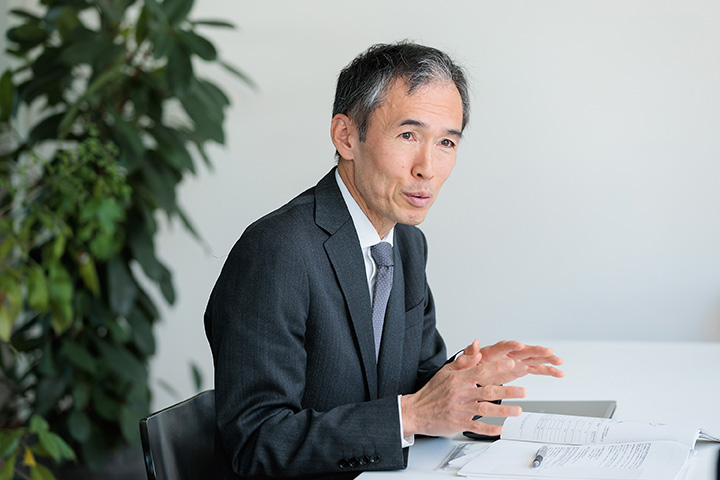
Director Azukizawa points out that some believe that “ODA may not always help developing countries.” But he expressed his desire to work with a variety of partners, including the private sector, precisely because development challenges are not easy to solve, and that it takes time to see outcomes.
SHIN: One of the things about the microcredit business that hasn’t been widely publicized by operators is the fact that it doesn’t have much of an impact when the customer uses it for purposes other than business investment. The fact that this report includes such facts makes it even more highly regarded by overseas microfinance investment funds. We feel that it is important to face the uncomfortable truths head-on, while still believing in our own ideals.
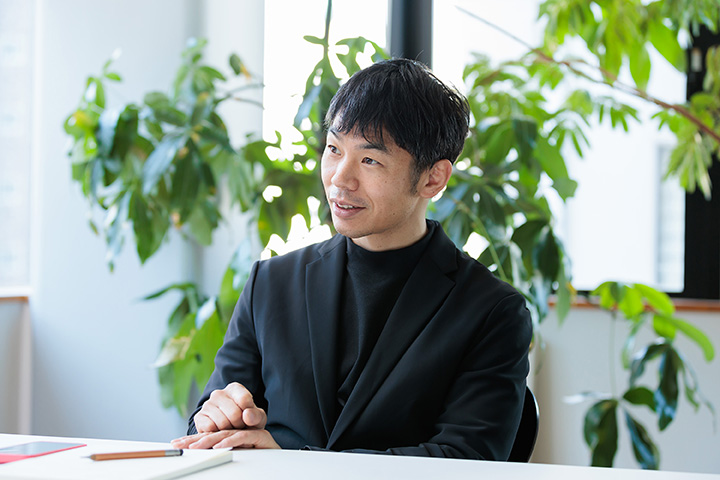
The business was started with a strong desire to “create a private-sector World Bank.” Gojo has local group companies that deliver financial services directly to locals on the ground. There are currently about 9,400 employees in the group's companies.
AZUKIZAWA: We feel the same way about carrying on in the face of difficult challenges and problems. To overcome them, we must understand what is needed for the local people.
SHIN: I like to go to the areas where we are expanding our business, and stay at the homes of potential customers to see how they live. I like to see with my own eyes their daily income, how much of it they spend on food, and how they save money day-to-day, to get a feel for the monetary values of that area. Then I can understand the real value of the money we are lending, which leads to our providing the necessary financial services. We have a goal “to enable the provision of high-quality financial services to 100 million clients in 50 countries.”
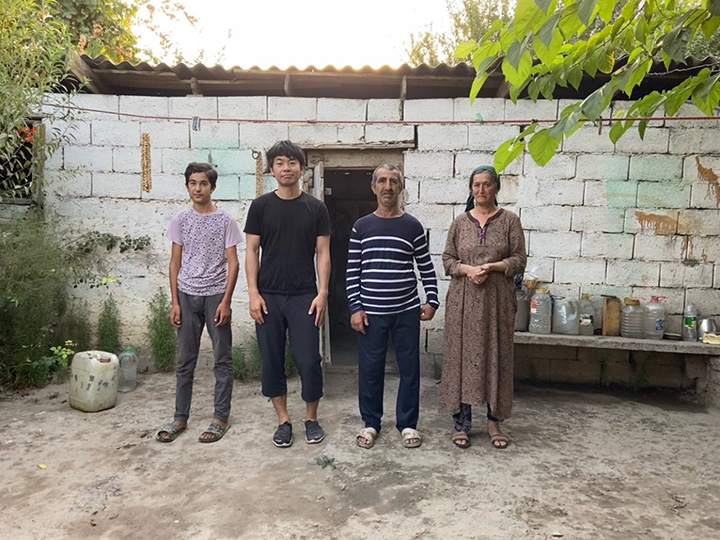
Shin (second from the left) in Tajikistan in 2021. He says that he “gets a feel for the value of money in each place” by staying in the home of potential customers where he is expanding business.
AZUKIZAWA: The most persuasive opinions are those that come from the local people. One of the roles of JICA is to provide feedback to governments and development organizations on the issues that are based on the actual situation and needs of ordinary consumers, and encourage them to link these issues to the policies of the country. I’m sure that Gojo will continue to expand its operations around the world, including Africa, and I hope to continue these discussions.
SHIN: Some 96 percent of our customers are women, and when we ask them how they will spend the money earned utilizing their microfinance funds, the most common response is food, followed by children’s school expenses. This means they are highly motivated to spend money on their children’s education. There may be issues with the quality of public education in developing countries, but I believe that there are significant business opportunities in the education field, regardless of whether or not our company is involved. As digitalization and other technological innovations continue to advance, it is inevitable that the forms of education we have today will change.
We expect that climate change will make it difficult for some people to continue farming, and they will be forced to change occupations. Demand for vocational training will increase.
AZUKIZAWA: Business opportunities in developing countries are broadening. As economic growth continues, especially in Southeast Asia, I feel that the world’s view of developing countries is shifting to a business perspective. JICA would like to support companies, including startups, in taking on the challenge of doing business in developing countries. We could provide local information and help to reduce the costs and risks that companies may not be capable of handling on their own. If a push from JICA can help make it possible to challenge the business in developing countries, that’s something we want to do more of.
SHIN: I am glad that JICA is a shareholder in our business expansion in developing countries. We are able to proceed smoothly with our projects, especially in these days of unstable international conditions, precisely because Japan’s diplomacy and international development cooperation have been well received and good relationships have been established. The outcomes of 70 years of Japan’s ODA are significant, and I know that the ties that have been cultivated for so long will not be easily broken.
AZUKIZAWA: It isn’t just JICA, but everyone involved in Japan’s ODA has built this trust, including organizations, private companies, JICA Overseas Cooperation Volunteers, and others. For Japan’s ODA to continue to leap forward, I believe it is necessary for not just Japan, but also various other partners, including private companies, to work together in presenting solutions. I hope that we can continue to work together to realize a better world.

Gojo has recently established a venture capital business in India, with a focus on financial inclusion. The company believes that it will be possible to further improve financial access if public funding is made available for such risk-involved business ventures.
Shin Taejun
Founder and CEO of Gojo & Company, Inc.
Involved in private equity investment over 8 years at Morgan Stanley Capital and Unison Capital, before establishing the NPO, Living in Peace, in 2007 (he retired as President in 2017), and establishing Japan’s first microfinance investment fund. Co-founded Gojo & Company in 2014. Engaged generally in group management, financing and investment. Was selected as a World Economic Forum’s Young Global Leader 2018.
Azukizawa Eigo
Director General of Private Sector Partnership and Finance Department, JICA
Joined the Overseas Economic Cooperation Fund (formerly OECF) in 1992. Served as Deputy Director of the JICA Southeast Asia and Oceania Affairs Department and Director of the Philippine Office before assuming his current position.
scroll